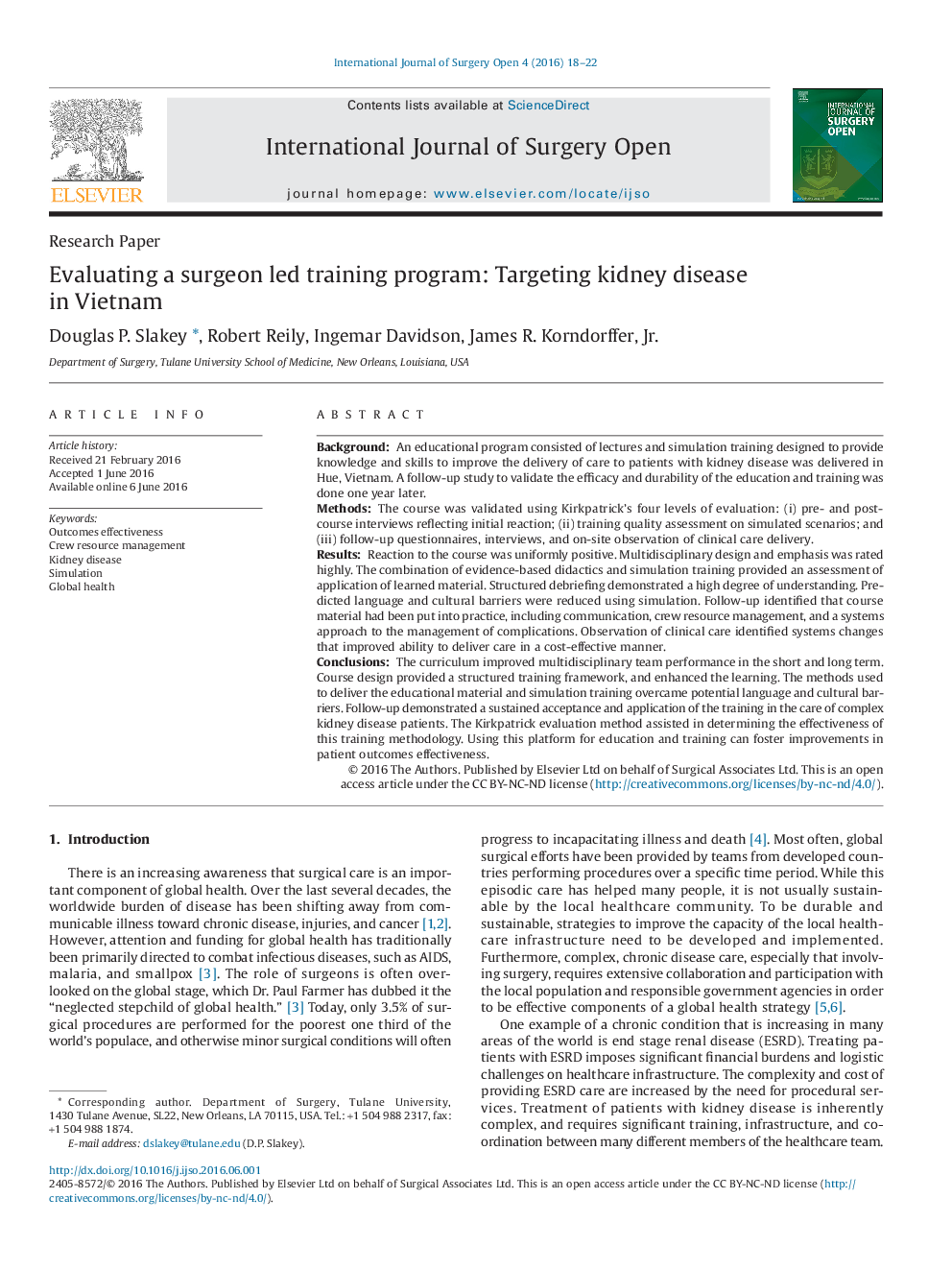| Article ID | Journal | Published Year | Pages | File Type |
|---|---|---|---|---|
| 2728499 | International Journal of Surgery Open | 2016 | 5 Pages |
•Live Internet-based medical education is effective for international multidisciplinary teams.•Medical team training using simulation techniques can have sustained results in emerging markets.•The Kirkpatrick method of evaluating training efficacy can be applied to international medical education.
BackgroundAn educational program consisted of lectures and simulation training designed to provide knowledge and skills to improve the delivery of care to patients with kidney disease was delivered in Hue, Vietnam. A follow-up study to validate the efficacy and durability of the education and training was done one year later.MethodsThe course was validated using Kirkpatrick's four levels of evaluation: (i) pre- and post-course interviews reflecting initial reaction; (ii) training quality assessment on simulated scenarios; and (iii) follow-up questionnaires, interviews, and on-site observation of clinical care delivery.ResultsReaction to the course was uniformly positive. Multidisciplinary design and emphasis was rated highly. The combination of evidence-based didactics and simulation training provided an assessment of application of learned material. Structured debriefing demonstrated a high degree of understanding. Predicted language and cultural barriers were reduced using simulation. Follow-up identified that course material had been put into practice, including communication, crew resource management, and a systems approach to the management of complications. Observation of clinical care identified systems changes that improved ability to deliver care in a cost-effective manner.ConclusionsThe curriculum improved multidisciplinary team performance in the short and long term. Course design provided a structured training framework, and enhanced the learning. The methods used to deliver the educational material and simulation training overcame potential language and cultural barriers. Follow-up demonstrated a sustained acceptance and application of the training in the care of complex kidney disease patients. The Kirkpatrick evaluation method assisted in determining the effectiveness of this training methodology. Using this platform for education and training can foster improvements in patient outcomes effectiveness.
